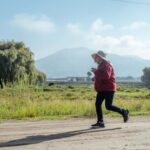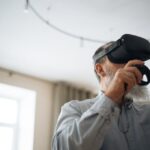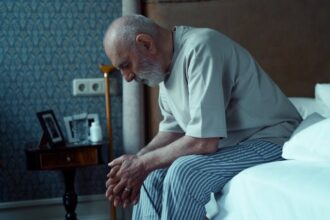A forthcoming study to be presented at the SLEEP 2025 annual meeting reveals a significant association between excessive daytime sleepiness and elevated all-cause mortality among middle-aged women. The research highlights that this link is not observed in younger or older female cohorts, suggesting a potential age-specific vulnerability.
The analysis demonstrated that women aged between 50 and 65 years who exhibited high levels of daytime sleepiness—measured using the Epworth Sleepiness Scale—faced a 16% higher adjusted risk of all-cause mortality compared to those with normal sleepiness levels. This association was held even after adjusting for potential confounders, including age, race, ethnicity, body mass index (BMI), and existing comorbidities. Interestingly, this elevated risk was not observed in women under 50 or those over 65, suggesting a potentially unique susceptibility during midlife.
Lead author Dr Arash Maghsoudi, a biomedical engineering PhD and instructor at Baylor College of Medicine in Houston, emphasised the clinical importance of this finding. “Identifying middle age as a critical period suggests clinicians should prioritise Epworth Sleepiness Scale assessments and address excessive daytime sleepiness in women approaching their 50s and early 60s,” he noted.
Daytime sleepiness is widely recognised as a key patient-reported outcome that can signal a host of health concerns, including increased vulnerability to adverse health events and a lower quality of life. According to the American Academy of Sleep Medicine, excessive daytime sleepiness is characterised by a persistent inability to remain awake and alert during the main periods of wakefulness, leading to unintentional dozing or falling asleep.
The study involved a retrospective review of the electronic medical records of 40,250 female veterans spanning from 1999 to 2022. The researchers focused on patients who had either been diagnosed with a sleep disorder or had received care for sleep-related issues. The average age of participants was 48 years. To quantify levels of daytime sleepiness, the research team employed a validated natural language processing tool to extract scores from clinical notes related to the Epworth Sleepiness Scale. This standardised questionnaire assesses the likelihood of dozing off during typical daily activities.
What adds nuance to the study’s conclusions is the absence of a significant association between excessive sleepiness and mortality in older women despite their higher burden of chronic health conditions. Dr Maghsoudi observed that this divergence might reflect hormonal, metabolic, or resilience-related mechanisms specific to midlife physiology. “It implies hormonal, metabolic, or resilience factors that warrant mechanistic follow-up for women in middle age,” he stated.
Taken together, these findings underscore the importance of heightened clinical awareness around sleep health in midlife women. As the data suggest, this age group may represent a window of increased vulnerability where daytime sleepiness is not merely a benign symptom but a potential marker of broader health risks. Further investigation into the biological pathways underlying this age-specific relationship could yield valuable insights into preventive strategies and targeted interventions aimed at improving longevity and quality of life in this population.
More information: Arash Maghsoudi et al, Excessive Daytime Sleepiness and All-Cause Mortality in Female Veterans: A Retrospective Cohort Analysis, SLEEP. DOI: 10.1093/sleep/zsaf090.0929
Journal information: SLEEP Provided by American Academy of Sleep Medicine








